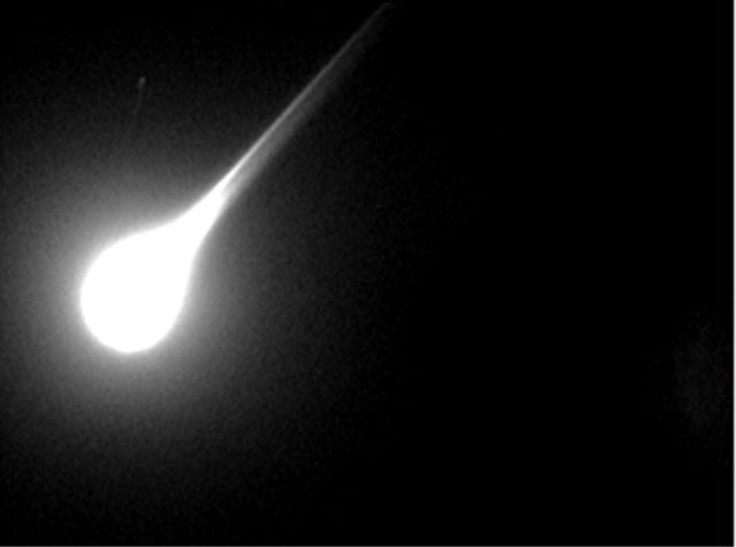Asteroid Collides With Earth And Causes Fireball Over England, Eyewitness Reports Reveal

KEY POINTS
- Eyewitnesses from England spotted a fireball streaking across the sky
- The fireball was brighter than Venus
- The incident was most likely caused by a meteor that burned up in the atmosphere.
Several eyewitnesses from different parts of England reported seeing a bright fireball streaking across the night sky earlier this week. Based on their descriptions, it seems the fireball was caused by a meteor that burned up after hitting Earth’s atmosphere.
Reports from the eyewitnesses were compiled by the American Meteor Society (AMS), which monitors fireball events in different parts of the globe. According to the eyewitnesses, the incident happened at around 8:30 p.m. BST, which is equivalent to around 3:30 p.m. EDT.
The AMS received a total of 12 reports from residents of different parts of England. Based on their submissions, many of the eyewitnesses were from Chillington, Cossington, Portesham and Coleford. The other witnesses were from Wales.
The reports indicated that the fireball that appeared in the sky lasted for about two to three seconds. Many eyewitnesses noted that the object appeared to be much brighter and more visible than Venus.
One eyewitness noted that he was waiting to catch a glimpse of SpaceX’s Starlink satellites in the sky when the fireball appeared.
“Definite meteor,” an eyewitness named Andrew S. stated in his report. “Only saw for 2 to 3 seconds. Intensity was as bright as Venus but 2 to 3 times apparent width so appeared much brighter. Was waiting for Starlink satellites at time but too far south so noticed meteor fairly early in flight.”
The descriptions provided by Andrew S. and the other eyewitnesses coincide with the definition of the AMS regarding fireballs. As noted by the organization, fireballs are formed when an asteroid hits Earth and enters its atmosphere, which then becomes a meteor.
Due to the friction caused by the atmosphere, the meteor can oftentimes burn up and turn into a fireball. Depending on the size of the meteor, the AMS noted that fireballs could be as bright or even brighter than the planet Venus.
“A fireball is another term for a very bright meteor, generally brighter than magnitude -4, which is about the same magnitude of the planet Venus as seen in the morning or evening sky,” the AMS explained. “A bolide is a special type of fireball which explodes in a bright terminal flash at its end, often with visible fragmentation.”
© Copyright IBTimes 2025. All rights reserved.





















